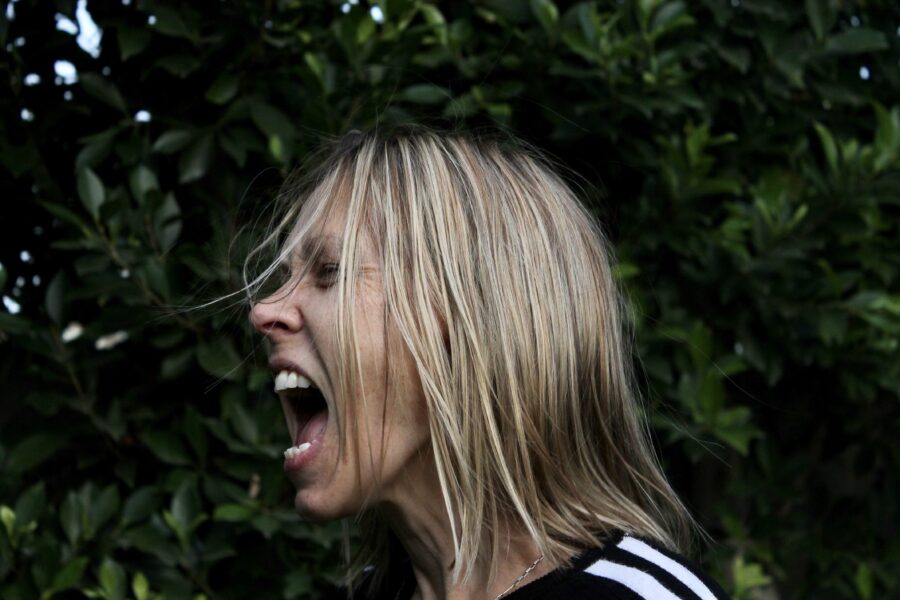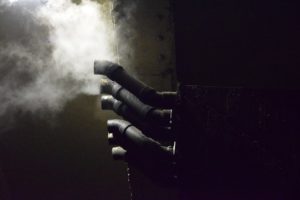In the late spring of 1989, on a Friday night at a trendy restaurant in downtown Toronto, I stood up (with several drinks in me) and announced to a gathering of girlfriends that I wanted to become an actor. For context, I was there celebrating my upcoming nuptials, and, no, I’d never recited a line of dialogue or stood on a stage in my life. My admission was spontaneous and unexpected. It may have followed a prompt like, “You’re getting married, what’s next?” or “Where do you see yourself in five years?” or perhaps I nonchalantly threw out, “Oh, and by the way…” as I thanked everyone for the good wishes. Regardless, that out-loud and in public declaration of mine was a big, ginormous deal. In fact, I’d go as far as to say that the moment changed the course of my life. Not because anyone in my company cared one iota about my ambitions as a thespian, or even took my words to heart given the late hour and the amount of alcohol consumed, but because in those few seconds I gathered the nerve to test myself and find out if that dim little voice inside of me had the courage to rise up and be heard.
Outspokenness was not encouraged in my family home. In fact, my parents wholeheartedly believed that children should be seen, not heard. (A directive, by the way, that stems from the 15th-century homily stating: A maid should be seen and not heard.) Born in the 1920s, between the two great wars, my mother and father experienced a lifetime of traumas by the time they were adults, which resulted in the serious mood of our home. Add to this my mother’s extreme religiosity (that squelched all ideas not supported by her literal translation of the King James Bible), the insecurity I felt as a child of immigrants, an absurdly long and difficult-to-pronounce last name, and a predisposition for the internal, and what you get is a kid who, despite a fiery and emotional interior, chronically presented herself to the world like a meek and humble church mouse. To be clear, it wasn’t that I was shy or afraid—I had a brother who made me tough. But the rules were plenty, the leniency rare, the expectations non-negotiable, and slowly but surely I developed a habit of deferring, avoiding, playing dumb and silencing my opinion until, well, I stopped having one altogether.
The first attempt to reclaim my voice occurred around the time my skinny, boy-like body began to change (likely 9th grade as I was a late bloomer). It happened at school as my classmates and I made our way from the lower to the upper campus, passing through an old gymnasium that was attached to a large sanctuary. The religious academy I attended was part of a thriving, conservative church on the east side of the city that regularly hosted weekly events. On this particular day, a meeting was underway, and we were warned to be quiet as we walked. Maybe it was the silent footfalls of my peers, or the pious murmurings from next door, or simply the word quiet, but suddenly my whole world slowed down, my focus narrowed, and all I could see was a shiny, blue snare drum at the end of the gym with a couple of sticks perched on top. I had to hit that drum. I had to hit that drum. After years of being shushed, pinched into catatonia during Sunday services, muted at the dinner table, made to sit silently during epic prayer sessions, I could not bear my voicelessness for one more second. And so I stepped out of line, broke away from the pack and raced over to the drum where I picked up the sticks and brought that instrument to life. Banging away with hard strokes. Heavy strokes. One after the other, piercing the reverence, disrupting the containment, sending a message to all the world that I would not be silent any-fucking-more.
In truth, the entire event probably lasted ten seconds. Someone must have stopped me straight away. I remember that I ended up in the principal’s office, my parents were called, and I was handed a week of pink detention slips. But that was it. My behavior was so out of character that they dismissed the bad decision as a one-off and sent me on my way. Which, in hindsight, wasn’t so smart. Because had they paid attention to the subtext of that moment, had they leaned-in and listened carefully, they might have heard the insurrection at play; they might have realized that a coo was brewing. Now that I had made noise and felt the euphoria of my emancipation, the urge to be loud and heard would never go away.
Of course, finding one’s voice evolves over a lifetime. My high school outburst was just the beginning. I would go on to endure extended periods of silence and insecurity –acquiescing my opinions, borrowing the voices of others, choking back instincts. And then I would try again. And again. I would try eight years later, as a trembling bride-to-be, banging on a drum, making some noise, disrupting the norm.







